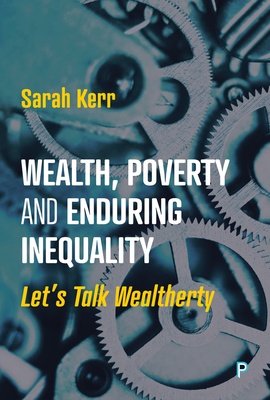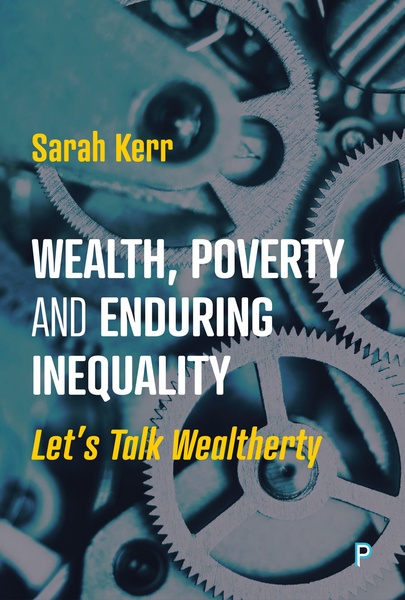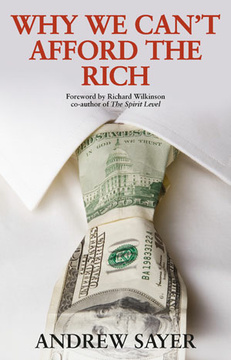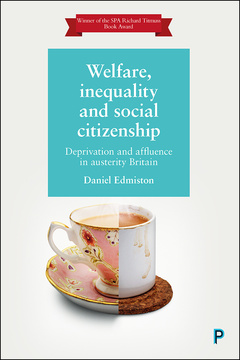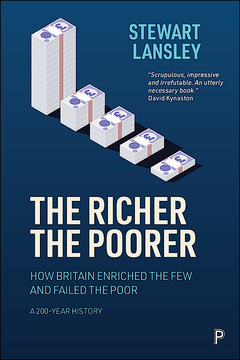Published
Sep 27, 2024Page count
256 pagesISBN
978-1447370567Dimensions
234 x 156 mmImprint
Policy PressPublished
Sep 27, 2024Page count
256 pagesISBN
978-1447370550Dimensions
234 x 156 mmImprint
Policy PressPublished
Sep 27, 2024Page count
256 pagesISBN
978-1447370574Dimensions
234 x 156 mmImprint
Policy PressThe rich and the poor in the UK are subject to radically different legislative approaches. While the behaviours of the poor are relentlessly scrutinised, those of the rich are ignored or enabled.
In this book, Sarah Kerr suggests that we live in a state of ‘wealtherty’, characterised by the hyper-concentration of wealth and a stark distinction between the rich and the rest. Drawing on evidence from the 1500s onwards, she reveals a long history of government scrutiny of the poor and ignorance of the rich. She contests contemporary policy and practice which disregards the enduring role of the rich in the production of poverty and poverty in the production of the rich.
In pursuit of social and economic justice, this radical book challenges policy makers and researchers to stop talking about poverty and to start addressing the problems caused by wealtherty.
Sarah Kerr is a Research Fellow at LSE International Inequalities Institute. She worked in higher education for years on the ‘other’ side and has been operating as a policy engagement specialist for over 15 years.
Part 1: What Have We Become?
A Wealtherty Manifesto
1. Why Wealtherty and Why Now?
2. The State of Wealth and the State and Wealth
Part 2: How Have We Become What We Are?
3. Knowing: How the State Came to Know Richer and Poorer People Differently
4. Governing: How the State Came to Govern Richer and Poorer People Differently
5. Being: How Ways of Governing Enabled Different Forms of Self for Richer and Poorer People
Part 3: What Sustains the Problem?
6. Producing Knowledge: Networks and Think Tanks
7. Shaping Behaviours: Space and the Visual as Tools of Government
8. Shaping Selves: Wealth and Identity
Part 4: Ways Out
9. Ways Out







